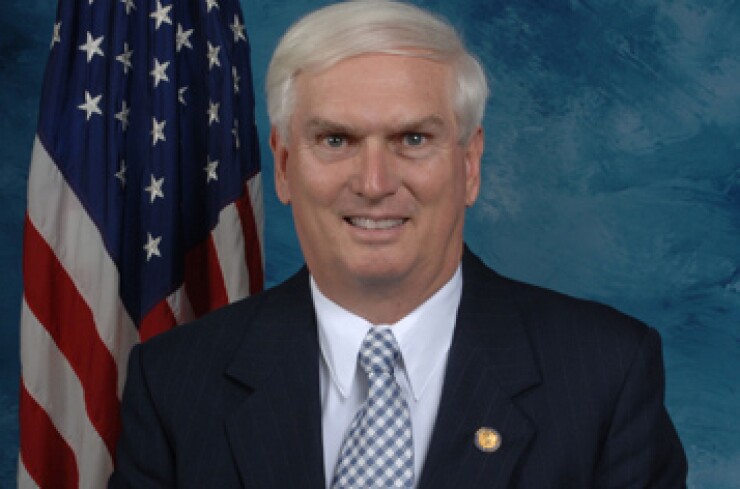
DALLAS — Foreign equity investor interest in U.S. transportation and infrastructure public-private partnerships is on the increase, a special congressional panel on P3s was told by bankers and other experts during a hearing in New York City on Monday.
The U.S. market is attractive to foreign investors because of its perceived political stability and a growing number of long-term opportunities, said Jamison Feheley, managing director and head of public finance investment banking at JPMorgan.
"We're getting calls on a weekly basis from investors looking at the U.S. market and wanting to know about opportunities to get into it," Feheley said.
"U.S. infrastructure is attracting a great deal of attention around the world," he said. "I've never seen anything like it."
The P3 panel created by the House Transportation and Infrastructure Committee held the session near Wall Street to get an insight into how the federal government can help state and local governments attract private investments in public projects, said chairman John Duncan Jr., R-Tenn. The session was the first one held outside Washington, D.C., he said.
The hearings and roundtables so far have focused on what the public sector looks for in developing P3s for roads, airports, water systems, and public buildings, Duncan said, but the financial community's perspective had been left out. The needs are great, he said, and the ability of governments to fund expensive projects is limited.
"Given fiscal constraints at all levels of government, addressing these enormous needs will be difficult," Duncan said. "At the same time, the private sector is looking for investment opportunities, particularly for entities like pension funds, which look for stable returns over a long period of time. Public-private partnerships may be a tool to accelerate infrastructure development, particularly for large, complex projects."
P3s can be the best way to fund some infrastructure projects but may not be appropriate for others, Feheley said.
"I have an agnostic view," he told the P3 panel. "There is a time and place for traditional debt financing and a time and place for innovative participation by private sector financing."
The U.S. municipal debt financing system is envied by foreign investors and governments, Feheley said.
"Everyone wants to know how they can replicate the American tax-exempt debt market," he said. "It is unique, it is efficient, and it is capable of attracting large sums of money."
Equity investors have an appetite for infrastructure, but the deal has to make sense for the private sector partner, said Karl Kuchel, chief operating officer of Macquarie Infrastructure Partners. The firm oversees $6 billion of investor funds committed to U.S. and Canadian infrastructure, he said.
If the private sector's risk on a project is high, Kuchel said, the return on investment should be high. Conversely, he said, low risk equates to a lower return.
"It's on a case-by-case basis," he said. "The public partner can reduce its risk, but for the risk transfer to be efficient it must be reflected in the pricing."
The U.S. P3 market lags behind Europe and Asia because of the decentralized government in this country, said Thomas Osborne, executive director of infrastructure at IFM Investors.
Most large infrastructure projects outside the U.S. such as airports and highways are built by the national government, he said, not by states or local authorities.
"With no central government that can take the risks involved in large projects, it is hard to implement the European model here," he said. "There are some states like Virginia or Texas willing to go out on the limb, but most are continuing to rely on the tax exempt debt market."





